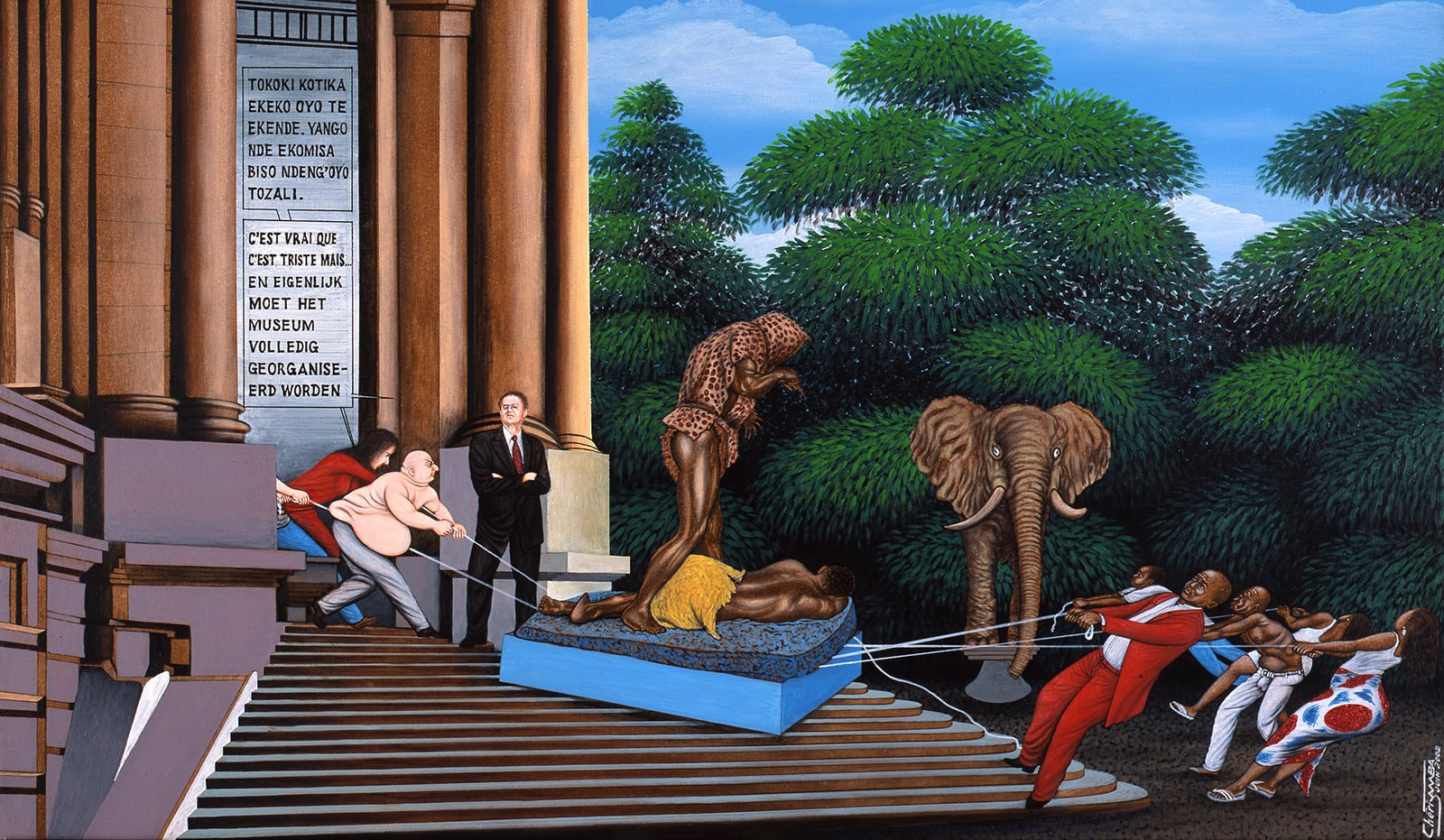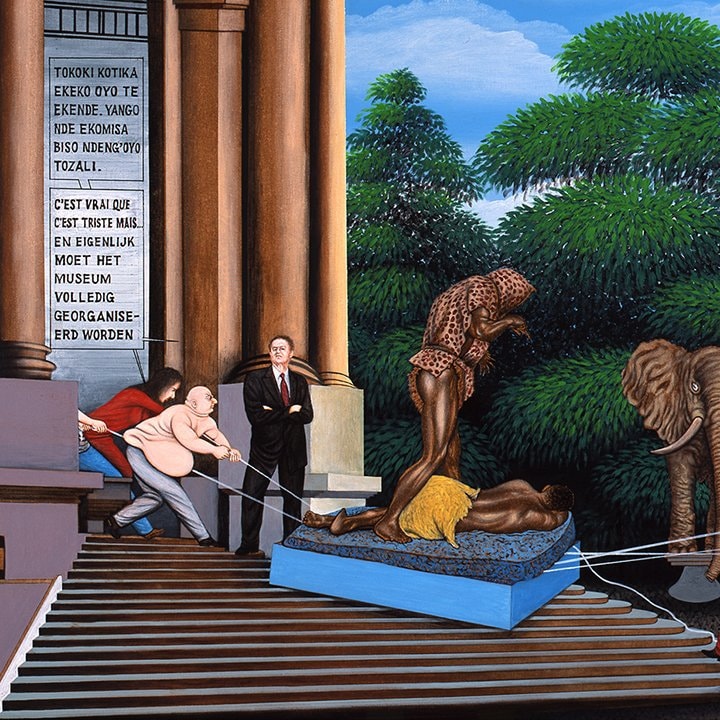Sarah Van Beurden, Associate Professor at the Ohio State University, discusses the Congo’s cultural policies under Mobutu Sese Seko.
In 1971, President Mobutu of Zaire (former Belgian Congo, today’s Democratic Republic of Congo) declared the cultural politics of authenticité (authenticity) to be the official ideology of the state. It attempted to reorient the country’s cultural identity to so-called authentic indigenous African values, with the professed goal of ending the cultural alienation caused by the colonial experience This lecture will explore how, in the context of these authenticity politics, Mobutu’s regime used both historical and modern arts to construct and promote Zaire’s postcolonial cultural sovereignty, at home as well as internationally.
Cultural institutions like the museum and the art academy played a central role in the formulation of national canon that excluded much of the work of the Popular Painters on display at Garage today, despite the international interest in these painters. Instead, it emphasized so-called traditional arts as a national cultural resource and promoted a modernism developed by a group of artists who organized themselves under the name ‘Zairian Avant-Gardistes’.

